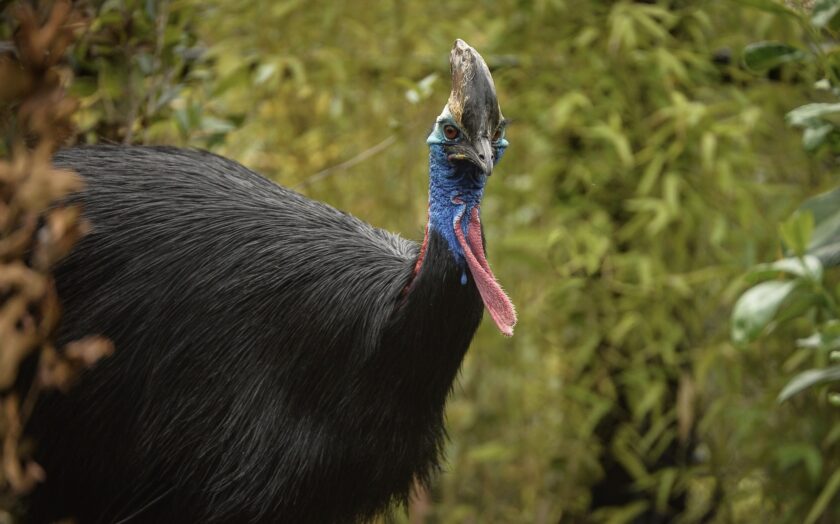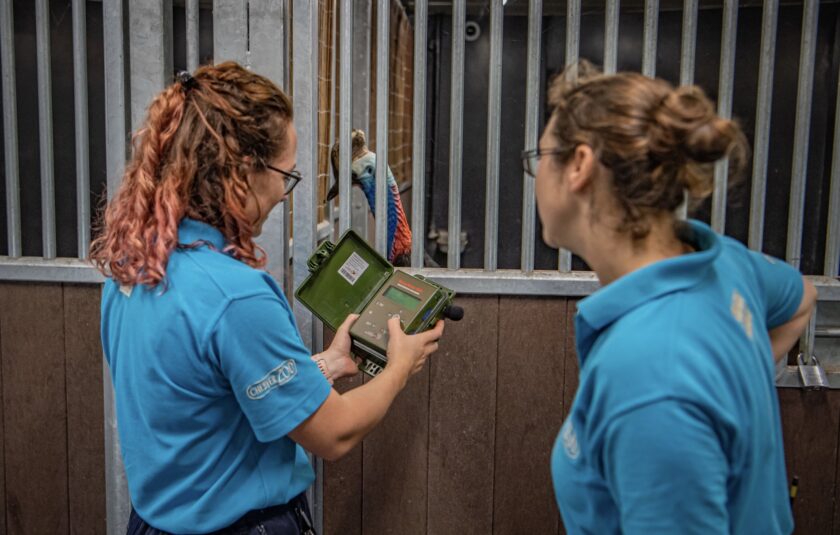Chester Zoo: ‘Dinosaur’ bird’s deep call may improve cassowary conservation

Keepers and scientists at Chester Zoo have recorded an unusual deep call made by female cassowaries, which may be previously unknown to science and could support efforts to conserve the species.
The call, described as a low-frequency ‘booming’ sound sometimes below the range of human hearing, was discovered during a Masters research project by Zoë Sweetman, team manager of parrots and penguins at the zoo.
Zoë said the discovery began when unusual behaviour from a female cassowary was observed. “We set up cameras and saw her making a vocal posture, but there was little scientific information about this behaviour.”
Further research suggested cassowaries might communicate using infrasound, sound frequencies below what humans can hear. Sound recorders confirmed the birds were producing deep booming calls.
To verify the finding was not unique to Chester Zoo, Zoë extended the study to cassowaries in BirdLand in Cheltenham and Avifauna in the Netherlands, where the same calls were recorded.
The cassowary, a large flightless bird related to dinosaurs, faces environmental pressures in the wild, including habitat loss in Papua New Guinea.
Rebecca Lewis, conservation scientist at Chester Zoo, said: “Breeding cassowaries can be difficult because of territorial behaviour and aggression outside the breeding season. Understanding these calls may help improve breeding success by better timing when birds are paired.”

The female cassowary’s call may be linked to their rare polyandrous breeding system, where females mate with multiple males and leave males to raise chicks. The call could signal readiness to mate again.
Zoë described cassowaries as secretive and intelligent birds despite their fearsome appearance. She said: “After watching thousands of hours of footage, I think they are a lot smarter than they are given credit for.”
The study also involved hormone analysis from faeces, but this requires further research. Since the study began, BirdLand has successfully hatched and raised a cassowary chick.
The discovery will be detailed in an upcoming scientific paper. The findings were featured in episode two of Chester Zoo’s new podcast, Abi Clarke: Zookeeper in Training.
Spotted something? Got a story? Email: [email protected]
Latest News
